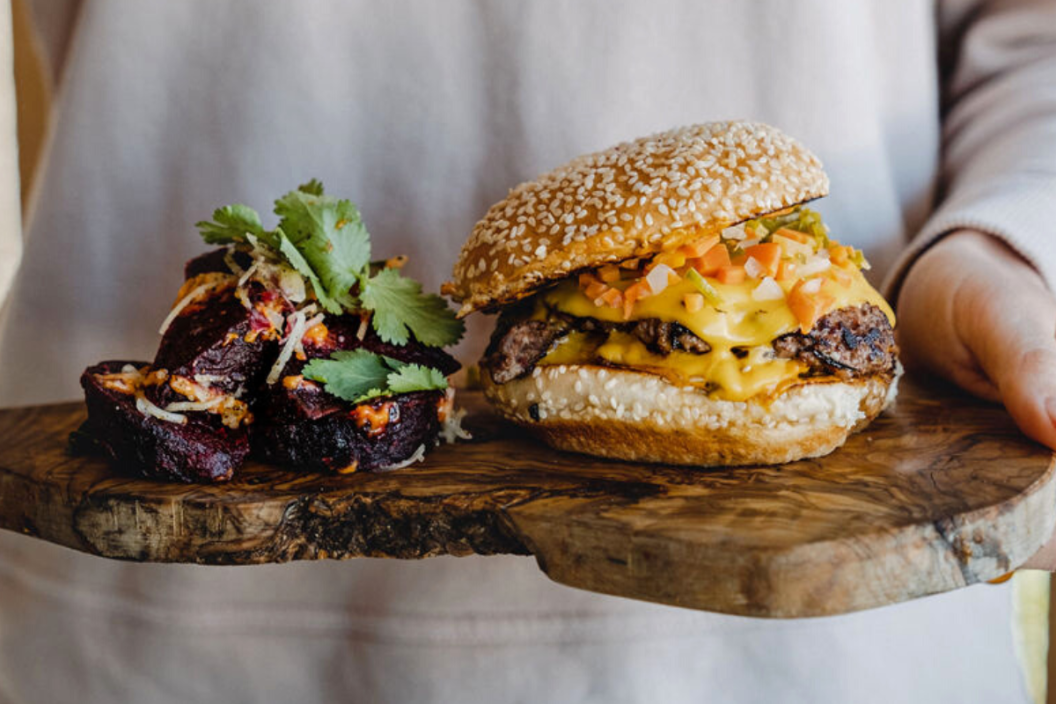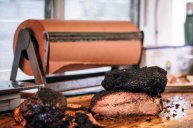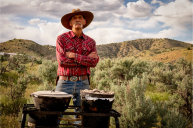Food truck culture is a vital part of the Austin metro area. From the city's downtown center to the smaller towns in the surrounding Texas Hill Country, chefs and food-world entrepreneurs see food trucks as an ideal way to serve up established favorites, play around with new recipes, and showcase top-quality local ingredients. In the Hill Country town of Driftwood, expert butchers and chefs Jesse Griffiths and Stephanie Stackhouse-both of whom built their careers at Dai Due, a celebrated butcher shop and farm-to-table restaurant in Austin—accomplish all three of these goals with Lo Salvaje, a food truck focused on wild game meats that recently set up a residency at Desert Door Distillery.
Videos by Wide Open Country
Central Texas and Game Meat
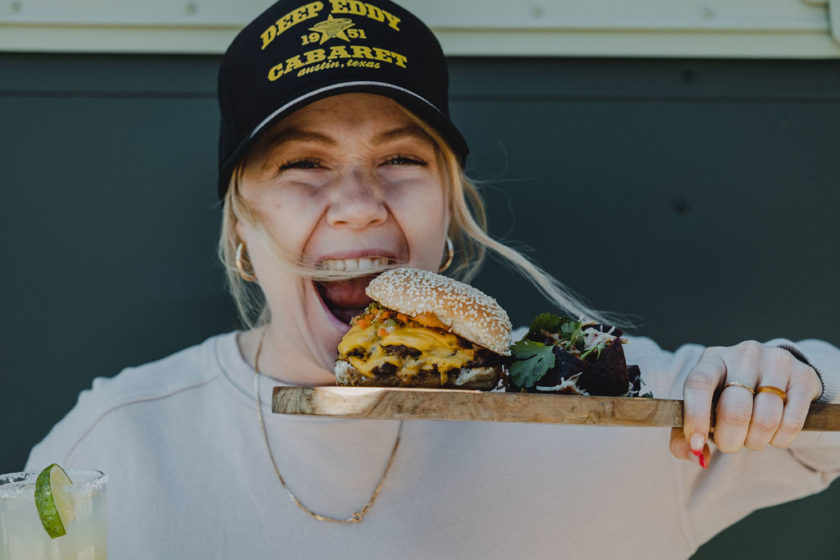
Lo Salvaje / Matt Henry and Desert Door
Central Texas has a long history of hunting and cooking with wild game meat. Wild game refers to any animal that's hunted in its own natural habitat either for food or for sport (or both), along with certain ethically-farmed meats that are designated as wild game. Griffiths tells us,
"Texas is a ranching state, first and foremost. This wasn't necessarily our decision, but one made for us by the weather and topography here. It's hot, it's rocky, it's subject to drastic weather changes. The Comanches before us were a meat-eating society, and I think that's carried over into modernity."
While Griffiths acknowledges that Texan gardeners "grow incredible and bountiful produce here," he emphasizes the fact that "animals are ingrained into our food culture indelibly. Texas is known for its rich game resources, and I love representing that at Lo Salvaje."
Gourmet and Accessible Wild Game
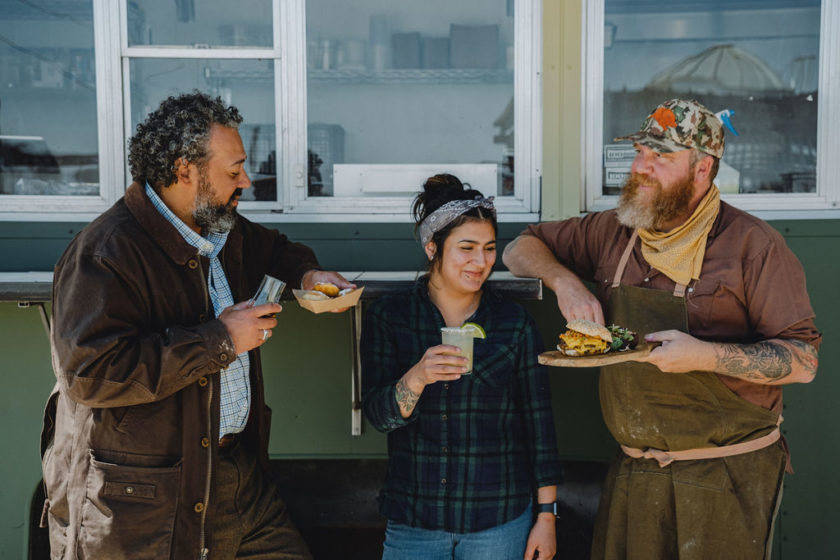
Lo Salvaje / Matt Henry and Desert Door
Lo Salvaje's current menu includes a wide range of local game meat, including wild boar, wild quail, and wild antelope. Plenty of visitors arrive at the truck with no knowledge of wild game, but Griffiths, Stackhouse, and their team are determined to introduce these proteins in a way that's fun, flavorful, and accessible.
"Some people don't think that game meat is legal to serve, and some think it's going to be gamey. We serve legally harvested or trapped feral hogs and nilgai [antelope] currently, which are both very approachable game meats," says Griffiths.
Including game meat in dishes that are already crowdpleasers is an easy way for Lo Salvaje to ease their clientele into this dining tradition: "I think careful methods of acquiring game and preparing it are important, but putting game meats into familiar food roles— tacos, nachos, burgers— is the best way to get people to try it out."
Dishes, Desert Door, and Drinks
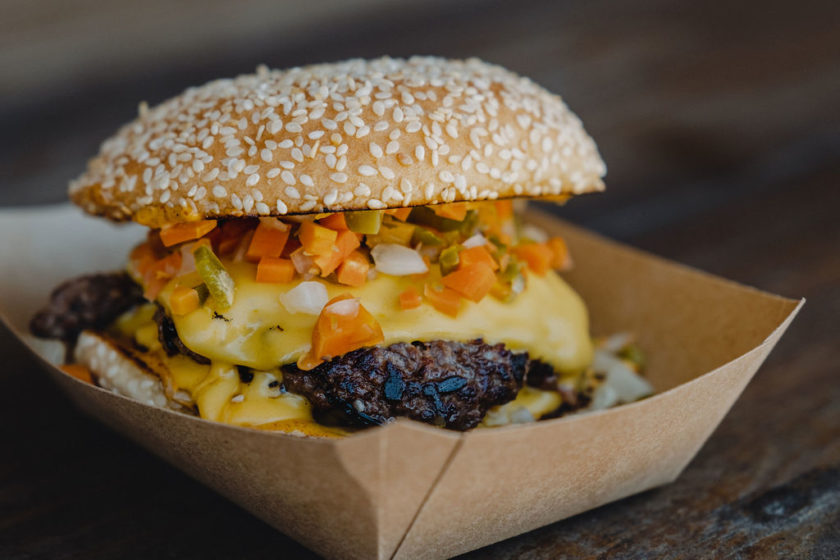
Lo Salvaje / Matt Henry and Desert Door
Because Lo Salvaje is located at a sotol distillery, the chefs try to create dishes that pair well with Desert Door's spirits and cocktails. One particular challenge (and particularly exciting adventure) for Lo Salvaje involves its status as a resident food truck for a distillery. Desert Door specializes in sotol, an agave spirit native to Mexico (but also produced in several areas of Texas) that's akin to tequila. The distillery offers tasting pours of its sotol, along with sotol-based cocktails that visitors can enjoy while sampling Lo Salvaje's dishes. This service style inspired Griffiths to "make simple, approachable bar food that everyone likes and recognizes. Burgers, wedge salads, tacos, nachos, donuts. Nilgai is an excellent stand-in for beef, so it was a natural fit for the burger. That dish will likely never change."
This hamburger is arguably Lo Salvaje's signature dish, with the lean but flavorful nilgai meat working beautifully with the toasted potato bun, tangy homemade escabeche, and creamy American cheese. However, there are plenty of other dishes worth sampling here:
"The boar guisada and the duck tinga are just some preparations that I love, but we will definitely switch it up and play with some other variations for the summer menu. People love it because these are classics done with more novel ingredients."
Griffiths also feels that Lo Salvaje works well as a food truck (rather than as a brick-and-mortar restaurant) because a truck "is much smaller, with a smaller menu that doesn't change as much." This gives the Lo Salvaje team the chance to really focus on the quality of their dishes without feeling overwhelmed by a large and constantly-changing menu. He says that he "loves operating a truck, especially at Desert Door. Imagining everyone's experience there is so easy— they're all there enjoying great cocktails in a beautiful space, so it's been easy to come up with fun menus of complementary food."
